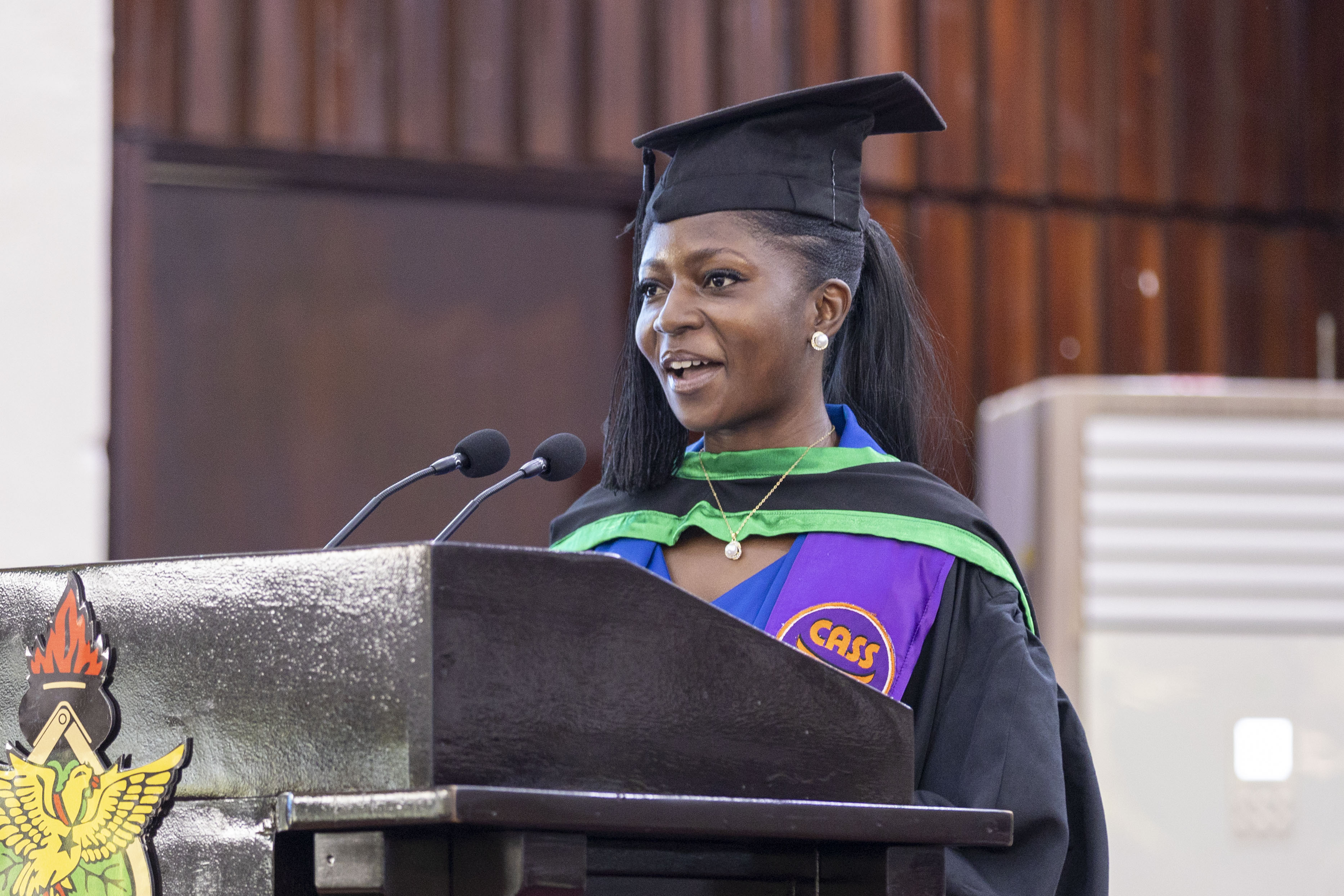With late nights of study, strict discipline and what she calls a “progressive mindset,” Emmanuella Kumi has emerged as the Valedictorian of the College of Humanities and Social Sciences, graduating with a CWA of 86.42. She completes her BA in Economics as the only female valedictorian at KNUST’s 59th Congregation.
Kumi said she never imagined becoming valedictorian when she first arrived at the university and did not fully understand the significance of the title. That changed in her second year.
“I won the overall best second-year student award at the Vice-Chancellor’s Excellence Awards,” she said. “That was when I realised I could be the valedictorian. Once something is within reach, you can work towards it.”
Her pursuit of academic excellence demanded sacrifice. After earning first-class honours in her first year, she viewed it not only as achievement but also as responsibility. She decided she could no longer live as what she described as a “normal student,” choosing discipline over comfort.
“It meant I couldn’t just be a normal student anymore,” she said. “University demands more than just attending lectures. You have to revise, reflect and go the extra mile.”
Kumi believes academic success must be coupled with a forward-thinking outlook. Long before university, she trained herself to think beyond the ordinary and credits this mindset for helping her stand out.
For her, the university experience went beyond passing courses. It was about building capacity, asking questions and growing mentally and personally. She said she often made decisions based not on external opinions but on what would benefit her long-term development.
“I always asked myself: How can I do this better? What are the advantages and disadvantages of every decision? I don’t follow the crowd. I make decisions based on value, not opinion,” she said.
Kumi encouraged students to believe that becoming valedictorian is possible for anyone who applies consistent effort to their academic work. Excellence, she said, is attainable through discipline and commitment. But beyond titles and recognition, she urged students to focus on a deeper principle: “Always strive to be the best version of yourself.”
She said while it is useful to draw inspiration from others, students must avoid using people as the standard for self-worth.
















